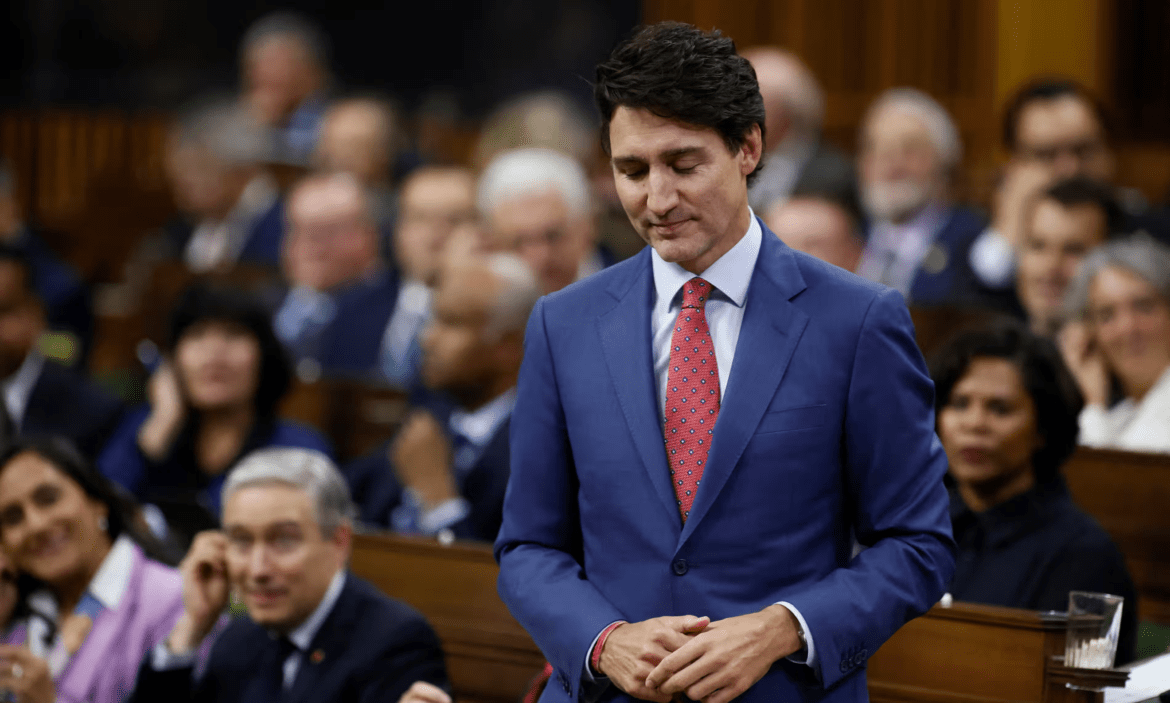AI Generated Summary
- This shift comes in the wake of Canada’s population surpassing 41 million, a surge Trudeau described as occurring at a “baby boom” pace, straining the nation’s infrastructure.
- ” Poilievre, a formidable contender for the prime ministership, has seen a surge in support, with his party holding 119 seats in the House of Commons.
- Canadian Prime Minister Justin Trudeau’s latest foray into digital communication has stirred a storm of reactions, following the release of a video explaining his government’s new immigration policy.
Canadian Prime Minister Justin Trudeau’s latest foray into digital communication has stirred a storm of reactions, following the release of a video explaining his government’s new immigration policy. The announcement marks a significant pivot, as Canada plans to cap immigration for the next three years, reducing allowed entries by 20%. This shift comes in the wake of Canada’s population surpassing 41 million, a surge Trudeau described as occurring at a “baby boom” pace, straining the nation’s infrastructure.
The video, titled “Why Canada’s Changing Its Immigration System,” quickly gained traction after being posted on YouTube, amassing over 288,000 views — a remarkable spike compared to Trudeau’s usual engagement metrics. A short clip shared on X (formerly Twitter) added fuel to the discussion, though the modest 7,500 likes hinted at mixed public sentiment.
The decision has reignited a longstanding debate about the balance between population growth and resource allocation. Some praised the government’s attempt to recalibrate. Francesco Sorbara, a Liberal MP, supported the move, highlighting Canada’s history as a land of opportunity for immigrants. “We need to ensure that the immigration system is manageable and that newcomers continue to succeed,” Sorbara wrote, citing his own immigrant roots.
For generations Canadians have welcomed newcomers like my parents. We need to ensure that the immigration system is manageable and that newcomers continue to succeed.
— Francesco Sorbara (@fsorbara) November 18, 2024
Canada selected my family and I am blessed and filled with gratitude b/c of this. https://t.co/9C2amEzQg6
However, critics were swift and vocal. Shon Amayev, press secretary to British Columbia MLA John Rustad, lambasted Trudeau’s timing. “Young individuals will most likely never be able to afford a home in this country because of your failed immigration policy,” Amayev tweeted. “Now that you are on the verge of losing power, you renege. 10 years too late.”
Young individuals will most likely never be able to afford a home in this country because of your failed immigration policy. Now that you are on the verge of losing power, you renege. 10 years too late. #cdnpoli https://t.co/sFOUMct4Dh
— Shon Amayev (@shonamayev) November 17, 2024
Maxime Bernier, leader of the People’s Party of Canada, echoed the criticism. “He smeared those of us who raised the alarm as racists until just a few months ago,” Bernier posted. “And now we should believe him when he says he can fix what he broke?? What a joke.” Bernier, who hopes to challenge Trudeau in the October 2025 election, faces an uphill battle as his party currently holds no seats in Parliament.
This clown finally recognizes he f*cked up by allowing millions of foreigners to invade our country.
— Maxime Bernier (@MaximeBernier) November 17, 2024
He smeared those of us who raised the alarm as racists until just a few months ago.
And now we should believe him when he says he can fix what he broke?? What a joke. https://t.co/uPqkIS888I
Another political heavyweight, Conservative Party Leader Pierre Poilievre, seized the moment to attack Trudeau’s leadership. “Classic Trudeau: he creates a problem. Then he says he should have solved it sooner,” Poilievre remarked. “He blames bad actors for immigration problems. No. He is the bad actor.” Poilievre, a formidable contender for the prime ministership, has seen a surge in support, with his party holding 119 seats in the House of Commons.
Classic Trudeau: he creates a problem. Then he says he should have solved it sooner.
— Pierre Poilievre (@PierrePoilievre) November 18, 2024
He blames bad actors for immigration problems. No. He is the bad actor. pic.twitter.com/xVNxoAZKyd
The debate over immigration caps has highlighted deeper concerns about Canada’s economic and social trajectory. While Trudeau’s policy shift seeks to address immediate pressures, the political fallout underscores a broader struggle for leadership and trust. As Canada moves toward the 2025 election, immigration is poised to remain a central and contentious issue.




